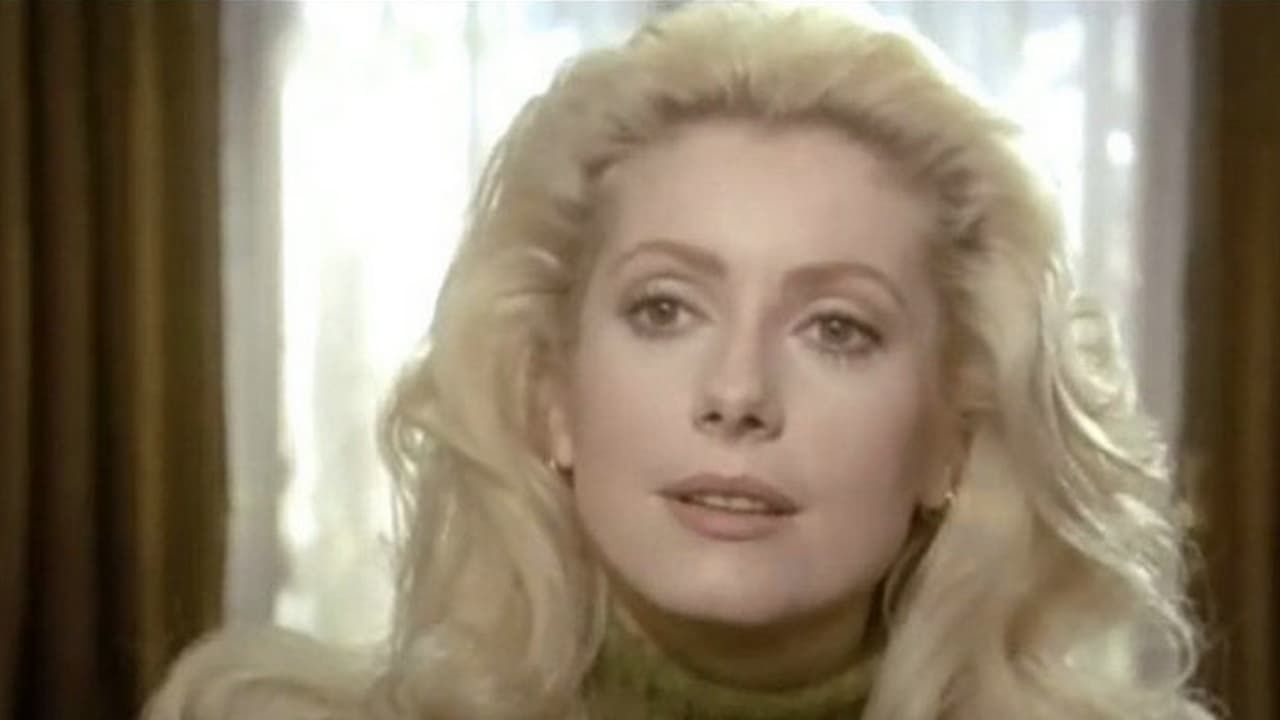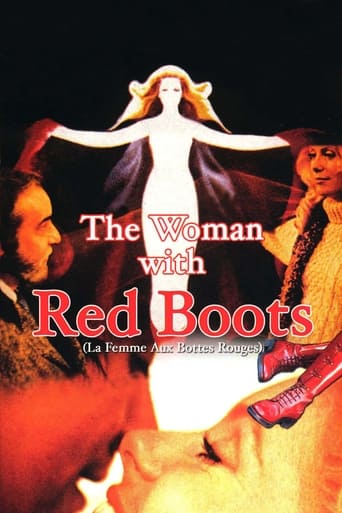

The younger Bunuel's finest cinematic achievement is, perhaps unsurprisingly, the closest film – in style and plot – to his famous father's work; actually it proves more bizarre than any of them, if also resulting in a slightly pretentious whole. Incidentally, as would be the case with his subsequent effort, LEONOR (1975; see review above), the old man's regular collaborator Jean-Claude Carriere lent a hand in the screen writing and, characteristically, the title has very little bearing on the storyline.It benefits greatly from the presence of two of the elder Bunuel's most prominent stars: Catherine Deneuve (typically enigmatic, and shown in a quick, unexpected and genuinely heart-stopping full-frontal nude early on that was shrewdly incorporated into the theatrical trailer) and Fernando Rey (at his most Macchiavellian and eccentric), who had already appeared together in his masterful TRISTANA (1970); no less notable, however, is Laura Betti's belated participation as Rey's snobbish housekeeper. Frankly, I have watched several of Deneuve's movies over the years and, while this may not be one of her more popular movies, I doubt if she (who was 31 at the time) ever looked lovelier on screen! Basically, the premise deals with ageing financier Rey, an aficionado of 3-D chess (at which novelist Deneuve emerges to be remarkably adept herself), who likes to treat human beings in much the same way as pawns on a board; besides the female lead, also involved in his machinations are her painter boyfriend, another young man (who, having married into and being currently employed by a wealthy family, is unceremoniously given the gate when tragedy – and fate – renders him a widower) and the latter's impressionable wife herself (played by Euro-Cult favorite Emma Cohen). Ultimately, Rey is revealed to be an enemy of the arts who has been imprisoning and eliminating various protégées inside his mansion for some time! However, the film's mainstay are its plethora of surreal moments, most of which are brought about by Deneuve's unexplained magical powers (that include second sight): Rey having a fit in an art gallery, then being led blindfold to the car by his devoted chauffeur, while ordering all the paintings therein to be sent to his residence; Deneuve following the young man, an unknowing admirer of her writings, down a stone stairway suddenly finds herself amid the vastness of a forest; she later imagines a visiting lawyer with a muddied boot on top of his head – though he can still feel the dirt it leaves on him!; Rey venting his frustration by biting down on a pillow, which he then cannot get rid of – until Betti turns up to do the same and rip it apart; despite his presumed neglect of the latter, he dreams of engaging in a gypsy dance (with violinist accompaniment, no less) with her; when Deneuve's two lovers quarrel at table in Rey's mansion, she has Cohen's husband shackled in chains; Rey himself drops a bottle of ancient and invaluable wine here when it metamorphoses into a hog's head in his hands; the picnic at the climax which, as the situation comes to a head, envelopes the scene in thunder and darkness (a scene which, bafflingly, not only turns to black-and-white on occasion but virtually breaks in half although, I cannot fathom whether this was an intentional artistic choice or a fault of the unimpressive DVD transfer!); and the Cocteau-like final shot as novelist and painter literally inhabit his latest canvas (which displayed amazing depth to begin with).It must be said here that all three of Juan Luis Bunuel's films improved on a second viewing for me but this, in particular, is the one that really makes one bemoan the fact that his cinematic career never really took off!
... View MoreWhilst it has to be said that this rather silly and I'm afraid somewhat pretentious, I enjoyed it. If Mr Bunuel junior had been able to shrug off the onerous responsibility of being his father's son, this could have been a less seriously intended and much more fun film. However, I am being picky for there are enough stimulating lines of dialogue and provocative visuals to keep things moving and we have the two stars, on top form, as well. Fernando Rey is at his impish best, and if at times we are not too sure what is going on, he never seems to have any such doubts. At once creepy, half crazed and completely mad he slides, bounds and crashes throughout his many scenes. And Catherine, seven years after her amazing performance in Mr Bunuel senior's classic, Belle de Jour, she is back again giving her all for his son. She does wear red boots a lot of the time but I saw nothing significant in this to warrant the title but she looks lovely in them. In truth she looks lovely without them too and with and without all her clothes. Well worth a watch.
... View MoreSpoilers herein.The elder Bunuel made films that were slickly vacuous, thinly self-referential and highly abstract, but they had some cinematic consistency. I find even the most celebrated trivial.The younger made this. It doesn't flow well, and is devoid of any visual sensibility. But I found it much more intelligent and adventurous.A writer writes a book that is this story. Her lover is a painter who paints this story. They encounter a publicist whose job is to make things seem different than they are, and a millionaire who is intent on manipulating local reality as a pull on art.The entire thing comes from an egg. The entire thing comes from a vision in a pub. The entire thing is a vision created by Francoise. The entire thing is a story in a letter intercepted and soaped, or an intricate chess game in three dimensions that creates in three dimensions, or a dream of the valet's.Or a history of her husband recounted by Leonore to herself as she paints her face in public - or perhaps just a phantasm in the night during an unexpected picnic.Maybe it is a bad movie that charmed me through the several century old magic of Prospero, who is quoted here throughout.Ted's Evaluation: 3 of 3 - Worth watching
... View MoreI had never heard of Luis Bunuel having a son who was a film maker, but this film is easily worthy of the master. It has some of his father's regulars and Catherine Deneuve's performance is creepily offhand, as is Fernando Rey's. It has the usual surrealistic sight gags but also has a teasing motif about a trompe l'oeil painting which pays off beautifully at the end. It's also somewhat reminiscent of Alain Robbe-Grillet's La belle captive. Can't imagine why I hadn't heard of Juan Bunuel before this.
... View More